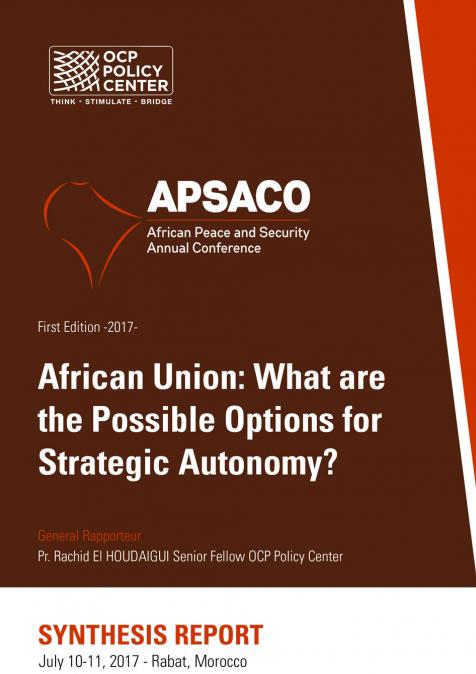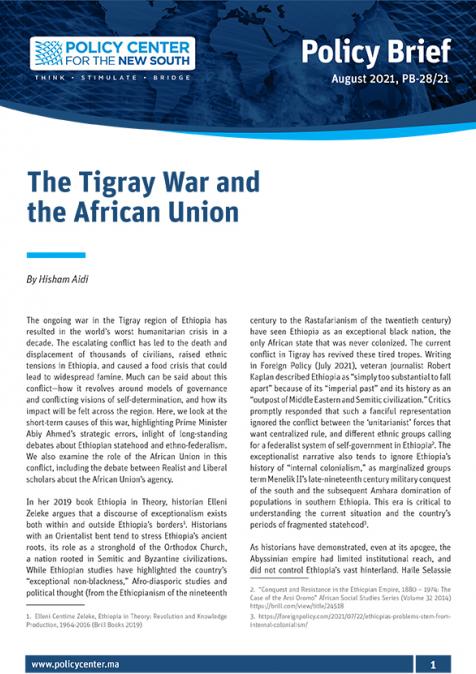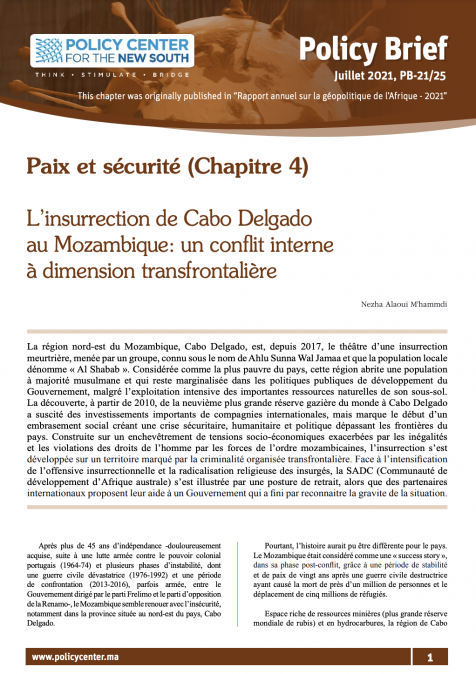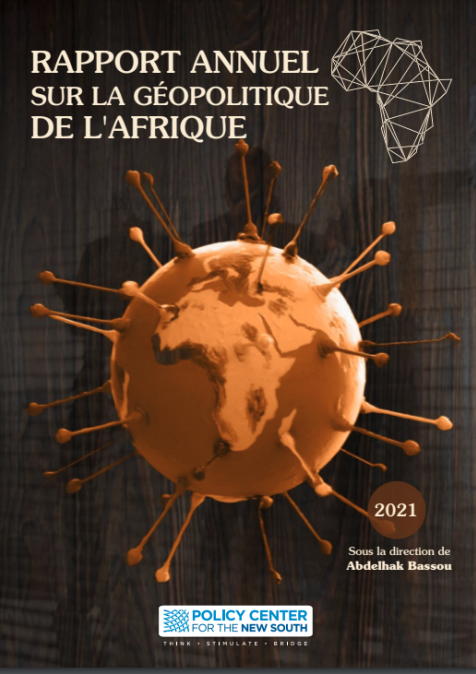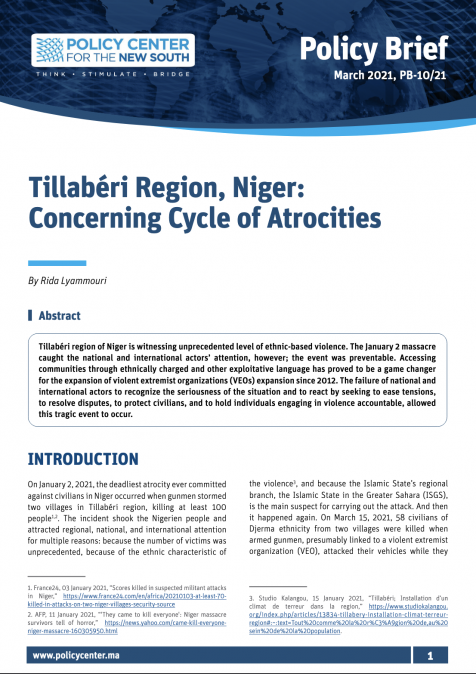Publications /
Book / Report
Book / Report
African Union: What are the Possible Options for Strategic Autonomy?
July 31, 2017
The African Peace and Security Annual Conference (APSACO), organized by the OCP Policy Center, was held from July 10 – 11, 2017 in Rabat. This first edition, focusing on the African Union’s (AU) strategic autonomy, aimed to facilitate a serious and constructive consideration of the various probable and realistic options for the rise of this international organization as an autonomous entity that is globally interdependent. The conference also aimed at launching a deep African debate on the continent’s place in developing global strategic discourse.

